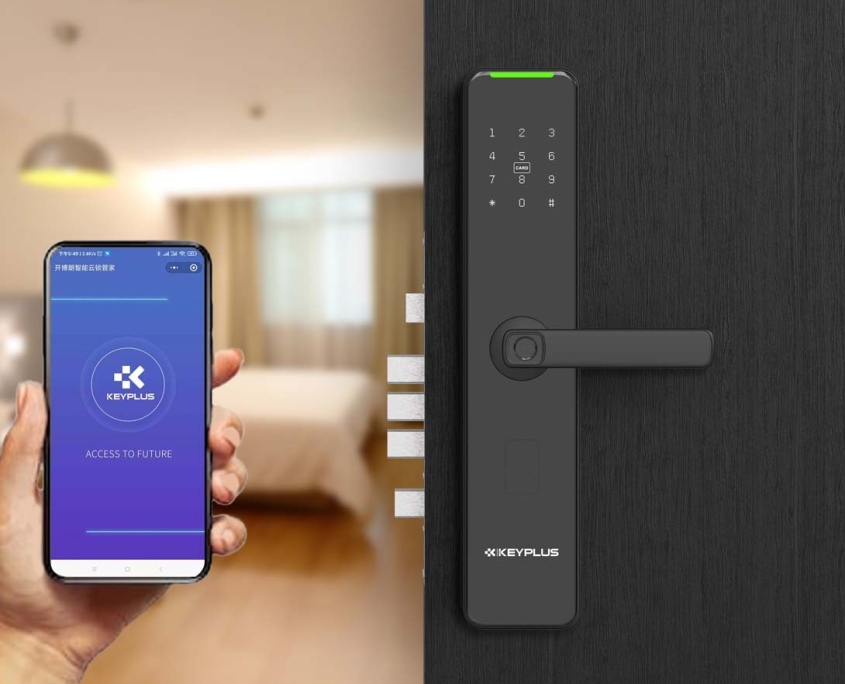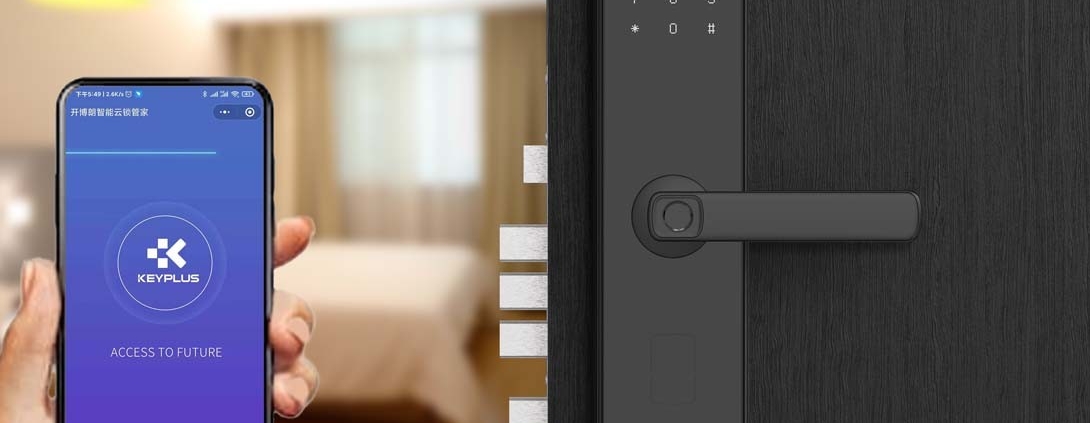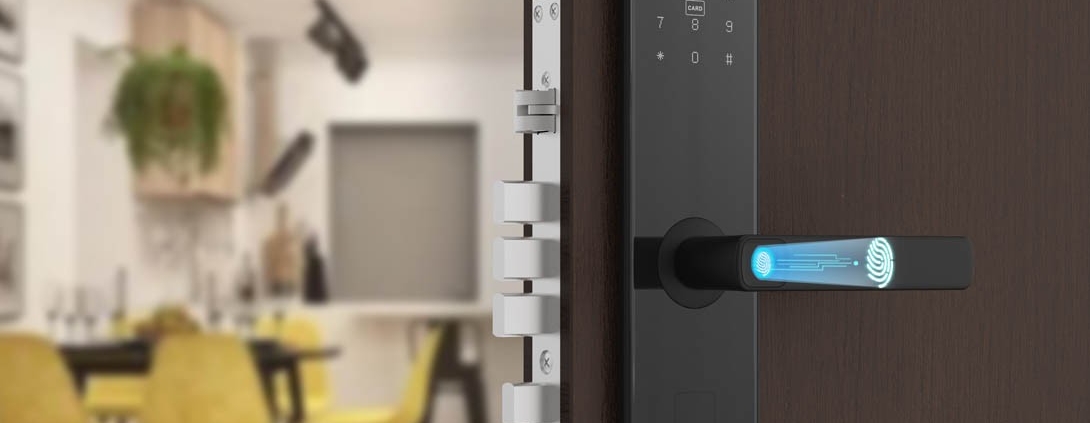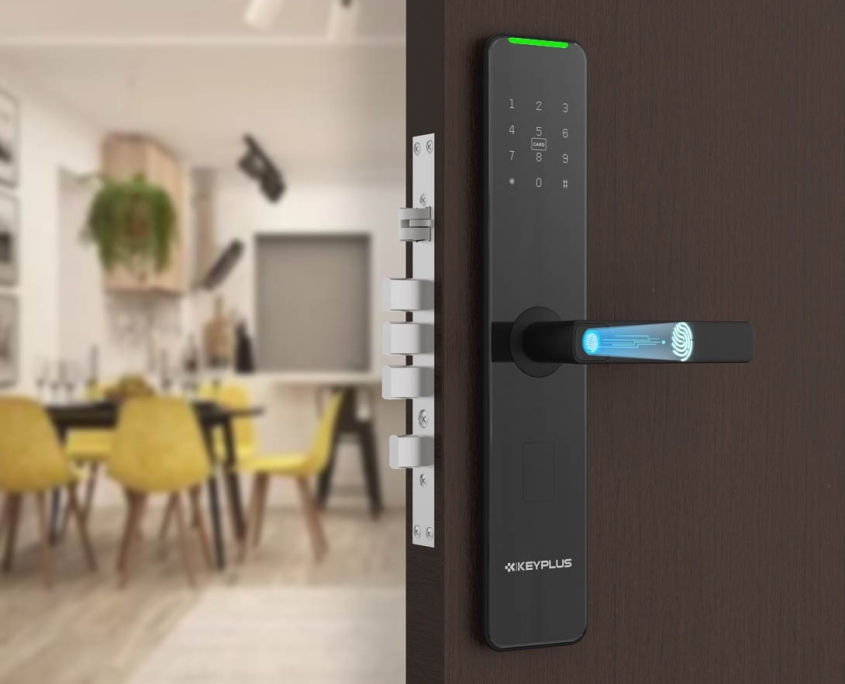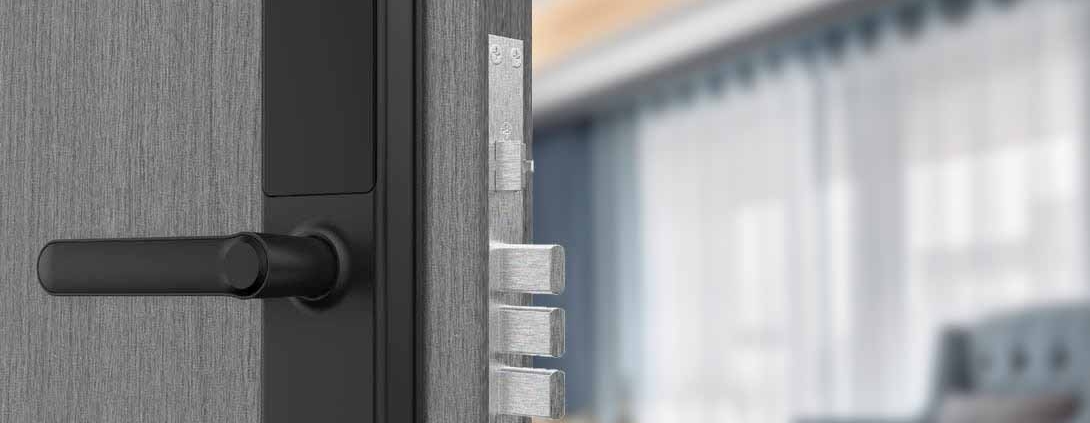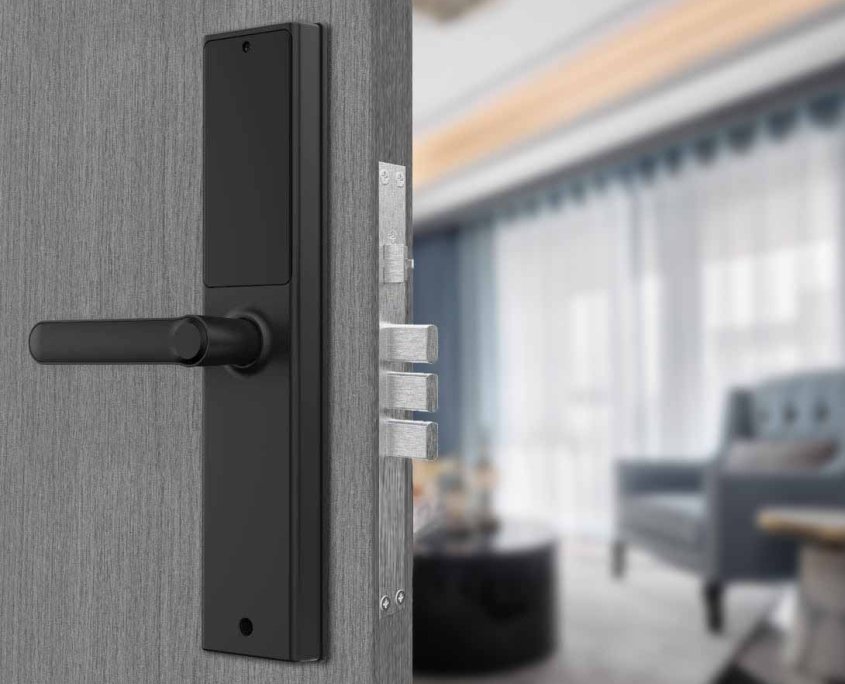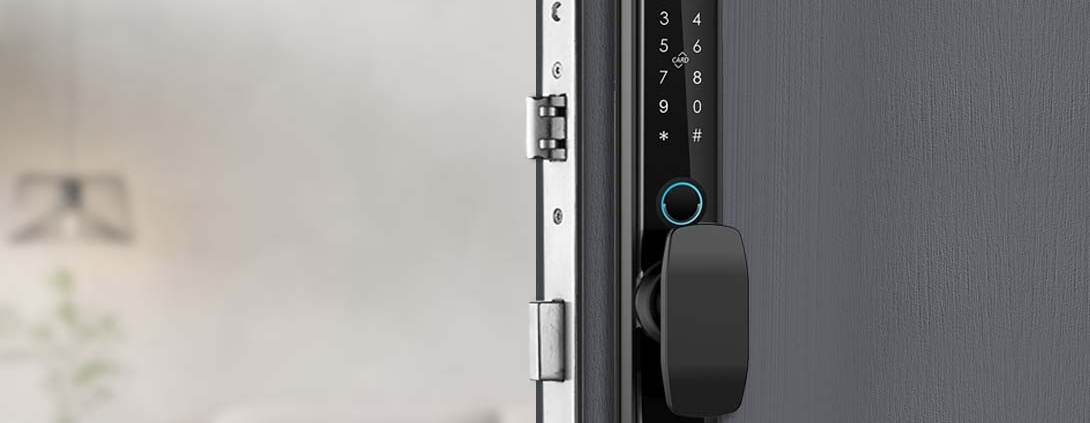Smart home technology is changing the way we secure our homes, and Bluetooth door locks are at the forefront of this shift. Unlike traditional locks (or even Wi-Fi smart locks), Bluetooth locks offer keyless convenience without the need for internet connectivity.
But how exactly do they work? Are they secure? And should you consider one for your home?
In this guide, we’ll break down:
How Bluetooth door locks function
Their pros and cons vs. Wi-Fi locks
Security risks and how to mitigate them
Best Bluetooth locks for U.S. homeowners
By the end, you’ll know whether a Bluetooth lock is the right choice for your front door, rental property, or vacation home.
1. What Is a Bluetooth Door Lock?
A Bluetooth door lock is a keyless smart lock that uses Bluetooth Low Energy (BLE) to communicate with your smartphone. Instead of a physical key, you can:
-
Unlock with your phone (automatically or via an app)
-
Share digital keys with family or guests
-
Lock/unlock remotely (with a hub or bridge)
How It Differs from Wi-Fi & Keypad Locks
| Feature |
Bluetooth Lock |
Wi-Fi Smart Lock |
Keypad Lock |
| Connection |
Phone-to-lock (BLE) |
Internet-based |
Standalone |
| Remote Access |
Only with a hub |
Yes (anywhere) |
No |
| Battery Life |
6–12 months |
3–6 months |
12+ months |
| Best For |
Close-range use |
Full remote control |
Basic keyless entry |
2. How Do Bluetooth Locks Actually Work?
Step 1: Pairing Your Phone with the Lock
-
Download the lock’s companion app.
-
Enable Bluetooth on your phone and follow the setup prompts.
-
The lock stores your phone’s unique Bluetooth ID for recognition.
Step 2: Unlocking the Door
-
Auto-Unlock (Proximity-Based): The lock detects your phone when you approach and unlocks automatically.
-
Manual Unlock (App or Button): Open the app and tap “Unlock,” or press a button on the lock itself.
Step 3: Sharing Access (Digital Keys)
Step 4: Power & Backup Options
-
Runs on batteries (usually 4x AA or a rechargeable pack).
-
If batteries die, most Bluetooth locks still have:
3. Bluetooth vs. Wi-Fi Locks: Which Is Better?
Advantages of Bluetooth Locks
Longer battery life (no constant Wi-Fi drain)
No internet required (works offline)
Faster response time (no lag from cloud servers)
More affordable than Wi-Fi locks
Disadvantages of Bluetooth Locks
Limited remote access (must be near the door unless you have a hub)
No real-time alerts if you’re away (unless paired with a bridge)
Phone dependency (if your phone dies, you need a backup)
Best Use Cases for Bluetooth Locks
-
Primary homes (where you usually have your phone)
-
Rentals/Airbnbs (easy digital key sharing)
-
Offline cabins/vacation homes (no Wi-Fi needed)
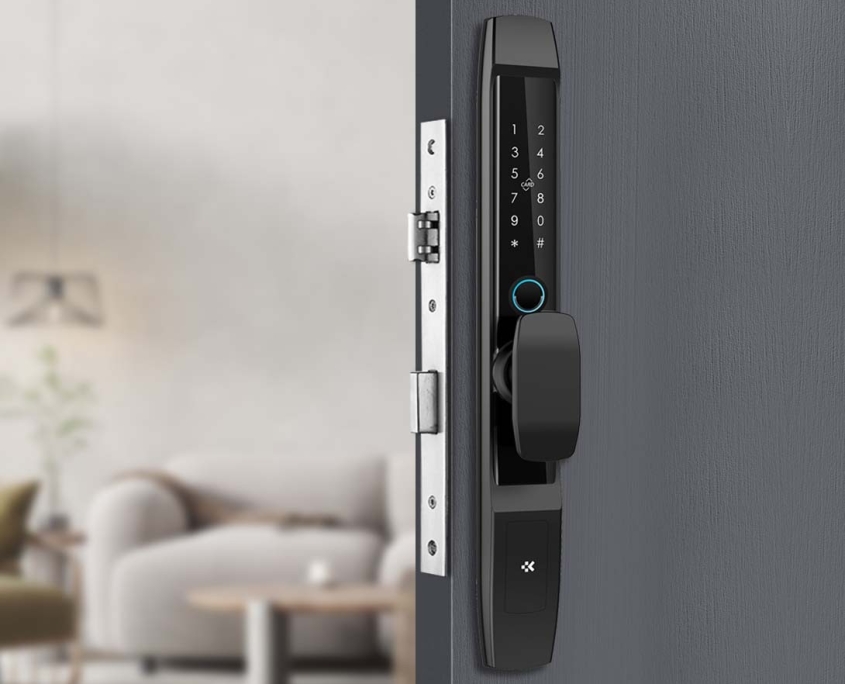
4. Are Bluetooth Locks Secure?
Built-in Security Features
-
Encrypted signals (prevents hacking)
-
Auto-locking (locks after a set time)
-
Tamper alarms (if someone tries to force entry)
Potential Risks & Fixes
-
Bluetooth Hacking (Spoofing): Rare, but possible. Fix: Use a lock with rolling encryption.
-
Phone Theft: If someone steals your phone, they could unlock your door. Fix: Use biometric app locks (Face ID, fingerprint).
-
Bluetooth Range Limitations: Someone could “tailgate” if you unlock from a distance. Fix: Adjust auto-unlock proximity settings.
5. Installation: Can You DIY?
Most Bluetooth locks are easy to install if:
Basic Installation Steps
-
Remove old deadbolt.
-
Install new Bluetooth lock mechanism.
-
Attach interior & exterior plates.
-
Pair with your phone via the app.
Pro Tip: Some locks are retrofit designs, meaning they work with your existing deadbolt—no full replacement needed!
6. Frequently Asked Questions
Do Bluetooth locks work with multiple phones?
Yes! You can share access with family, roommates, or guests.
What if my phone dies?
Most Bluetooth locks have:
Can I control a Bluetooth lock remotely?
Only if you add a Wi-Fi bridge or smart home hub.
Do Bluetooth locks work with voice assistants?
Some do (via a hub), but not as seamlessly as Wi-Fi locks.
7. Final Verdict: Should You Get a Bluetooth Lock?
YES if you want:
NO if you need:
Bottom Line
Bluetooth door locks are a secure, energy-efficient, and cost-effective alternative to Wi-Fi smart locks. They’re perfect for homeowners who want keyless entry without monthly fees or complex setups.
If you’re ready to ditch your keys, a Bluetooth lock is a great first step into smart home security.
Have you tried a Bluetooth lock? Share your experience in the comments!

In today's smart home era, Wi-Fi door locks have become a popular choice for Americans looking to enhance security and convenience. These high-tech locks allow you to control access to your home remotely using a smartphone, voice commands, or…

Keyless entry door locks have become increasingly popular in American homes, offering convenience and modern technology. Instead of fumbling for keys, homeowners can unlock their doors using a keypad, smartphone, fingerprint, or even voice commands.…

In today's digital age, hotels worldwide are upgrading from traditional key cards to smart door locks – advanced systems that use cutting-edge technology to enhance security and guest convenience. But how exactly do these futuristic locks…

Best Smart Door Lock Manufacturer in Saudi Arabia: Enhancing Security with Innovation
In today’s fast-evolving world, security and convenience are top priorities for homeowners and businesses alike. Saudi Arabia, a hub of technological advancement…

In an era where convenience and security are paramount, smart door locks have become an essential part of modern homes and businesses. Dubai, known for its innovation and luxury, is at the forefront of adopting smart home solutions. If you're…

The Smart Home’s First Defense: Your Complete Guide to Choosing a Digital Door Lock
Forget fumbling for keys with arms full of groceries or worrying about lost keys during vacation. Digital door locks offer keyless entry, remote access, and…
